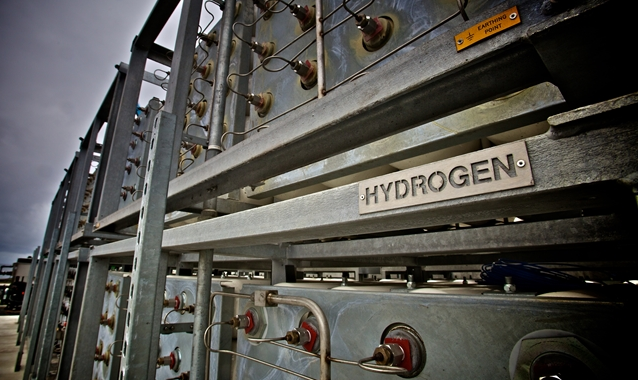
Sustainable hydrogen gas has been produced for the first time from tidal energy.
It’s creators hope that it could be utilized as a as a clean alternative to fossil fuels.
Created by the European Marine Energy Centre (EMEC) using electricity derived from tidal energy, this is the first time this experiment has been successfully carried out anywhere in the world.
EMEC’s tidal energy test site at the Fall of Warness, Eday, Orkney was the location of the energy and science first.
The feat required the power of Scotrenewables’ SR2000 device and Tocardo’s TFS and T2 turbine to feed power into an electrolyser.
Through the electrolyser, the electricity generated is able to split water into its component parts – hydrogen and oxygen.
EMEC’s investment in hydrogen production capability was made possible by funding of £3million from Scottish Government, made available through Highlands and Islands Enterprise.
EMEC managing director Neil Kermode said: “The electrolyser was set up to pilot the production of hydrogen fuel from tidal energy – and now we’ve done just that. This is a tremendous milestone for us and thanks must go to EMEC’s staff, the Scottish Government, Highlands and Islands Enterprise, ITM Power and Bryan J Rendall Electrical for helping make this happen.
“Whilst the initial driver behind buying an electrolyser was to provide a storage solution to circumvent local grid constraints, the purchase has sparked off other pioneering projects around Orkney looking to use hydrogen in various means. So we’re now looking towards the development of a hydrogen economy in Orkney.
“One of the most promising uses of hydrogen is as a fuel for transport as it emits no carbon when it is consumed and, providing it’s generated by clean renewable energy sources, it becomes a carbon neutral fuel source. Therefore, we could see green hydrogen, over time; replace polluting fuels in our cars, vans and ferries.”
Energy Minister Paul Wheelhouse said: “The Scottish Government is pleased to be supporting this innovative project which will help to partially overcome grid constraints in the Orkney Islands by enabling the storage of excess tidal power generated and using that electricity to produce hydrogen.
“The project also adds to our growing understanding of the potential role of hydrogen in Scotland’s future energy system – something we have committed to exploring in our draft Energy Strategy.”
